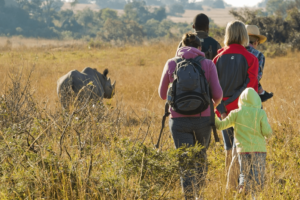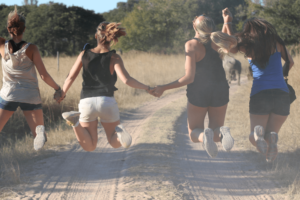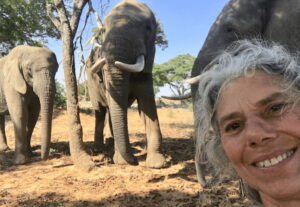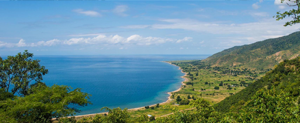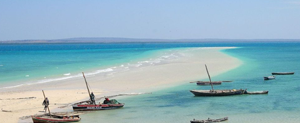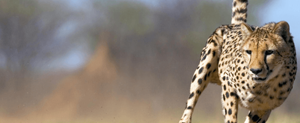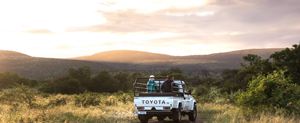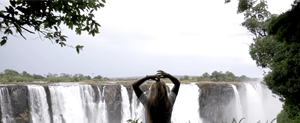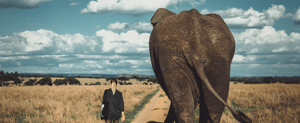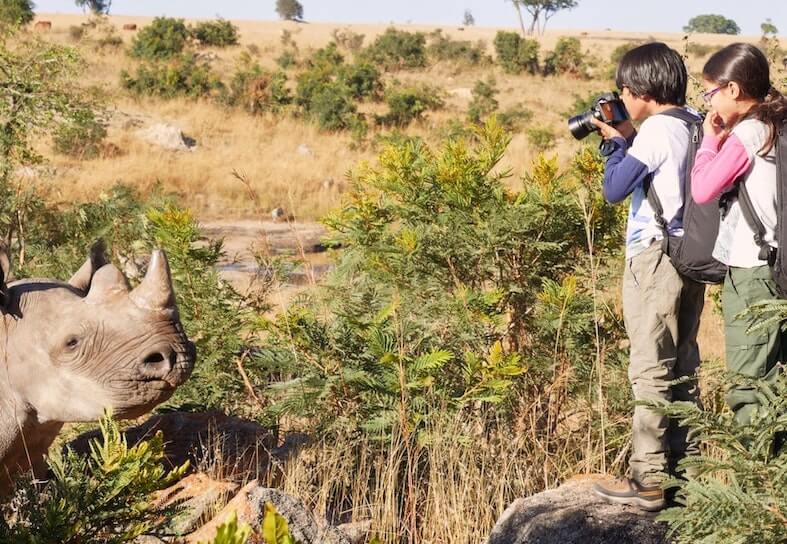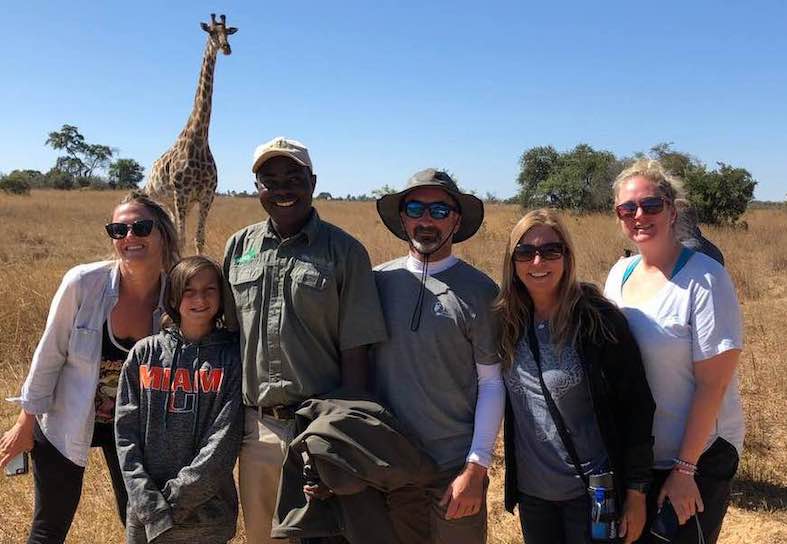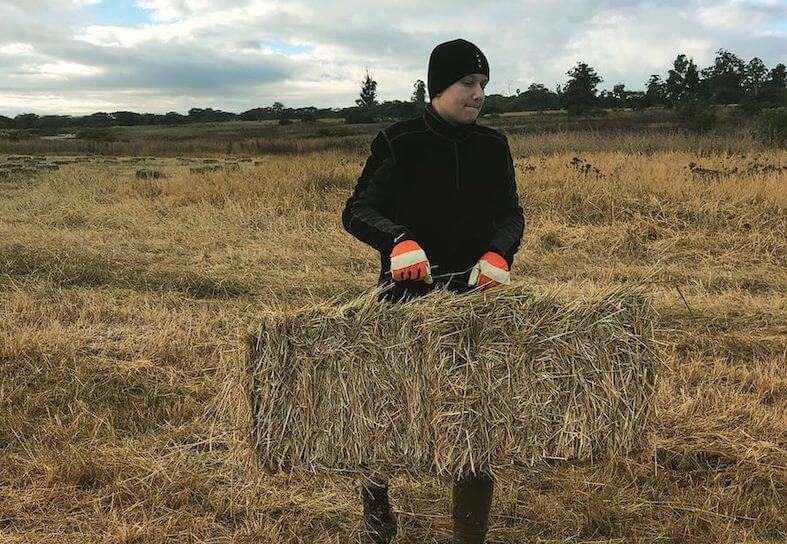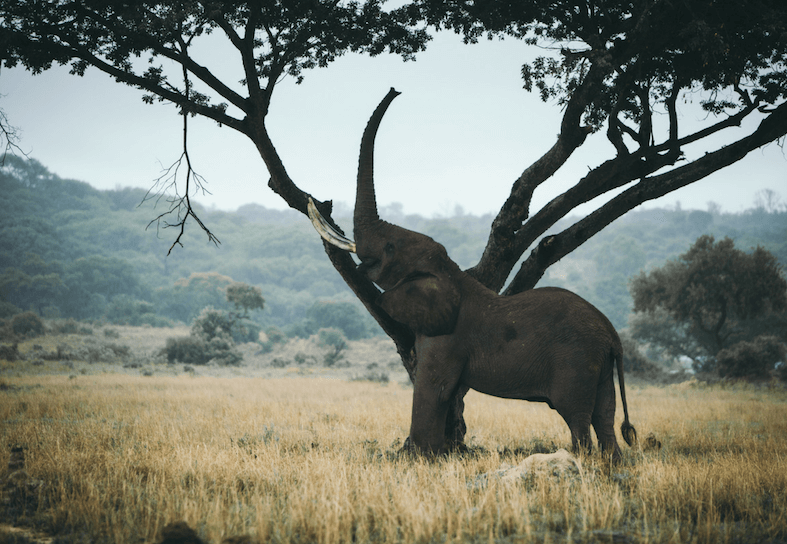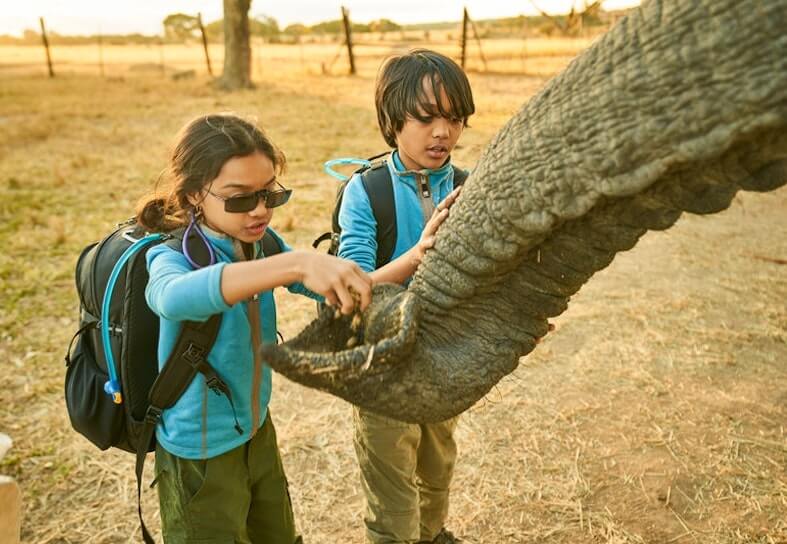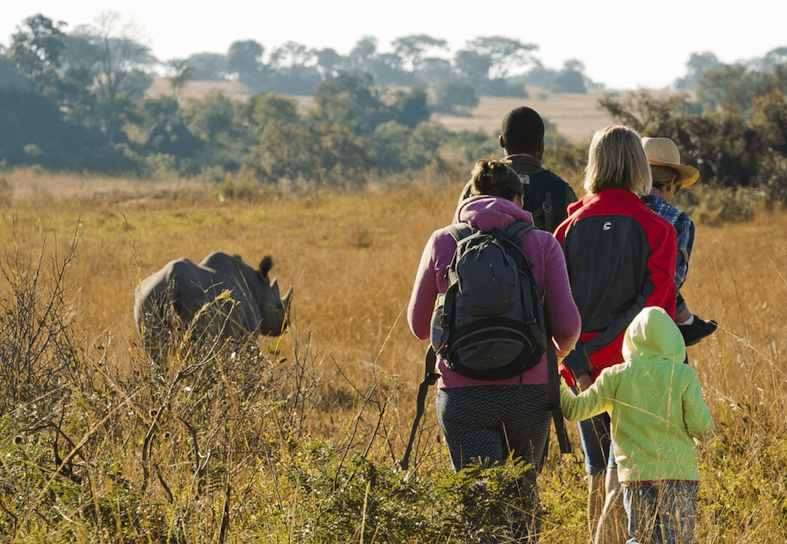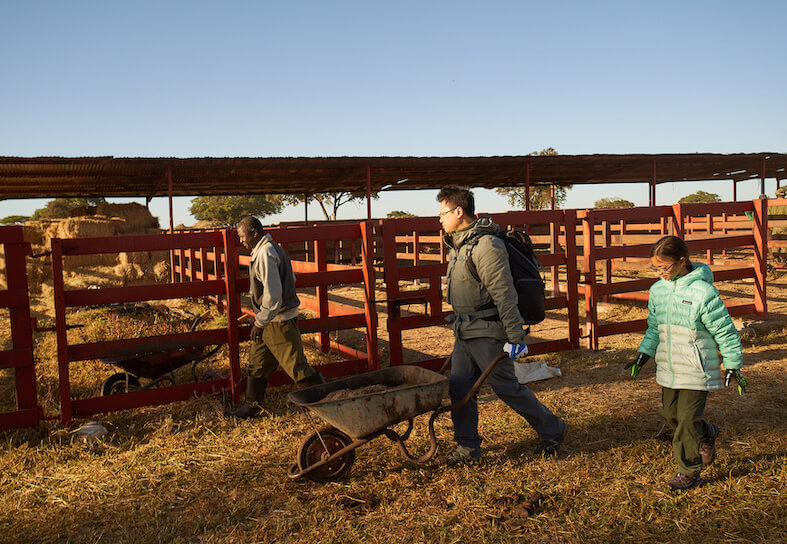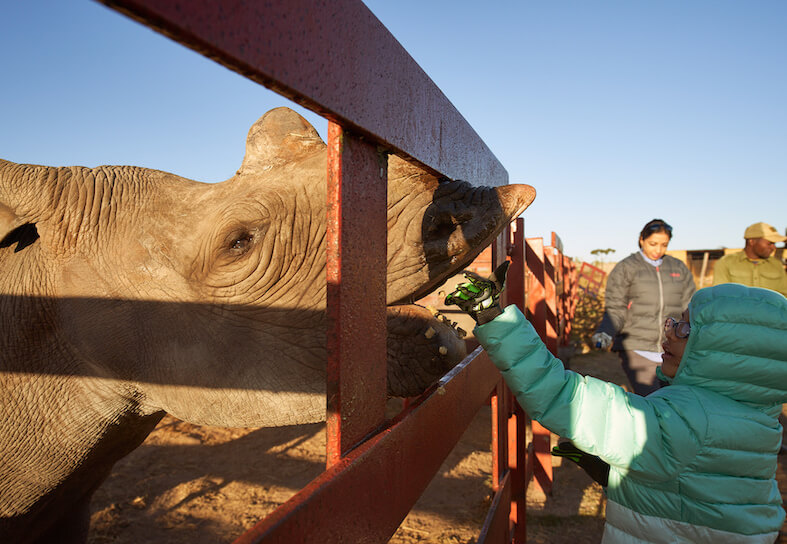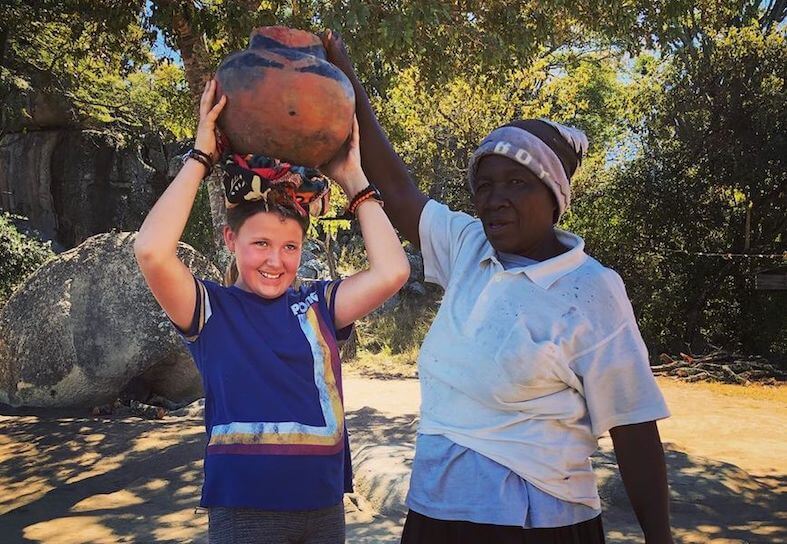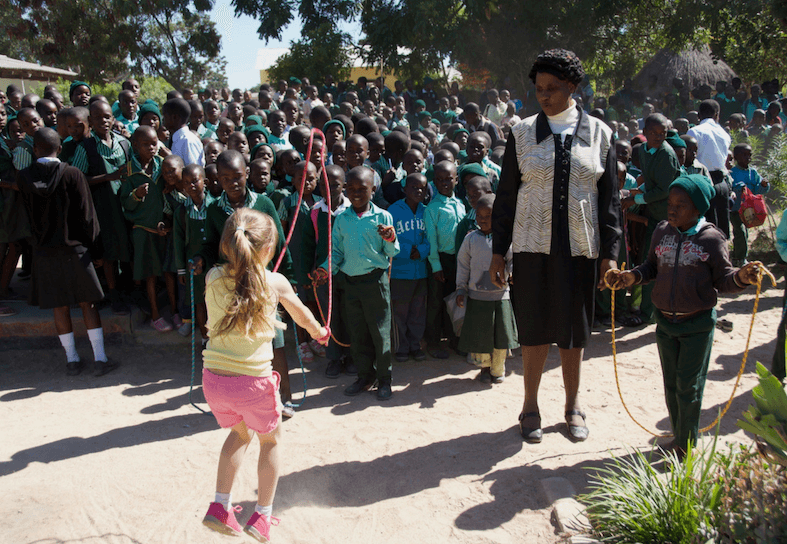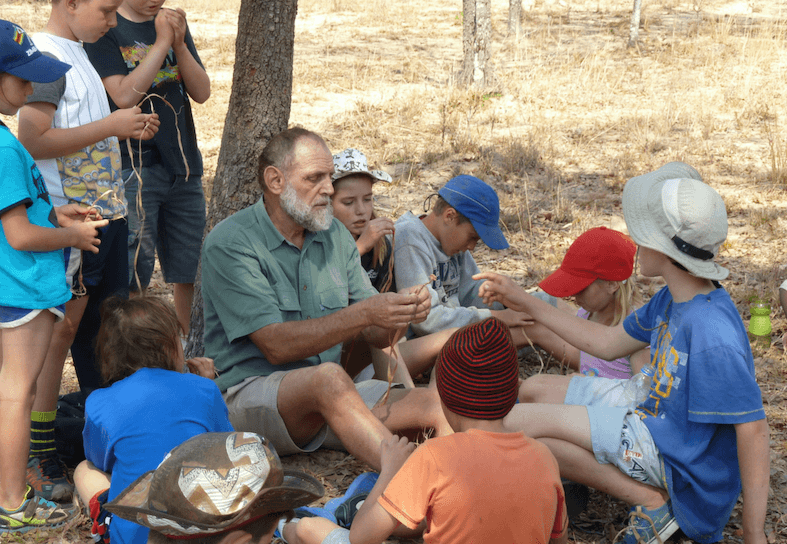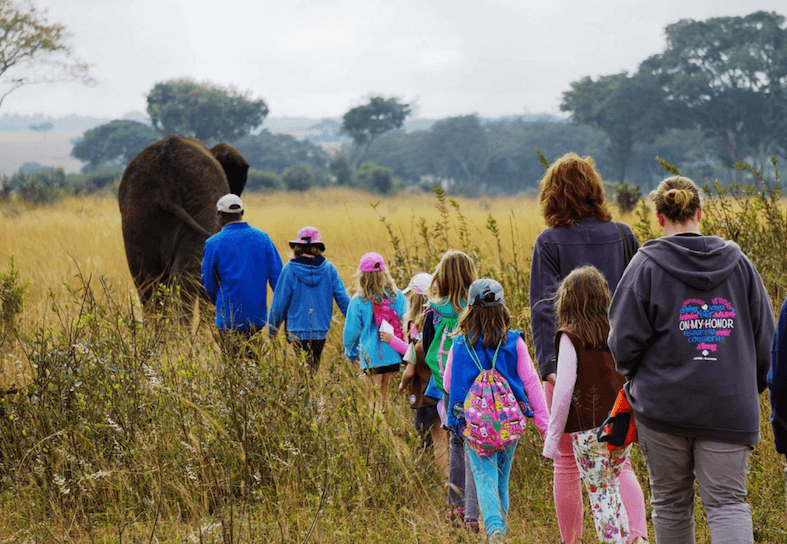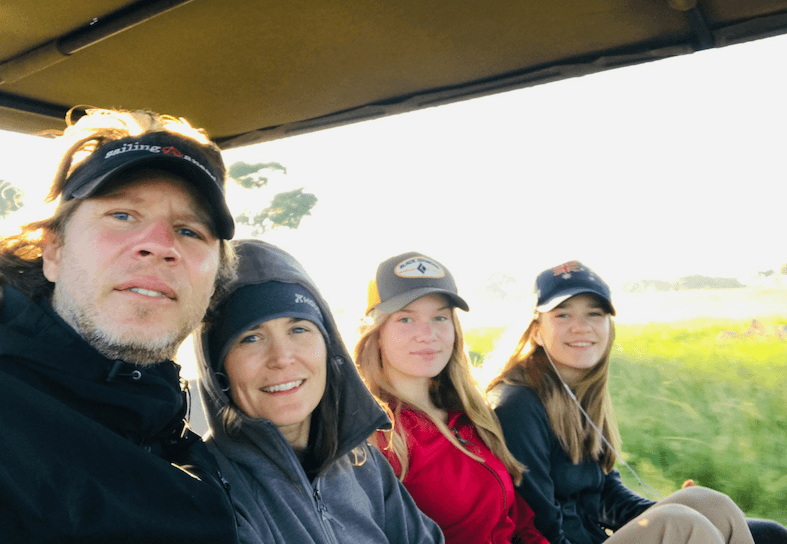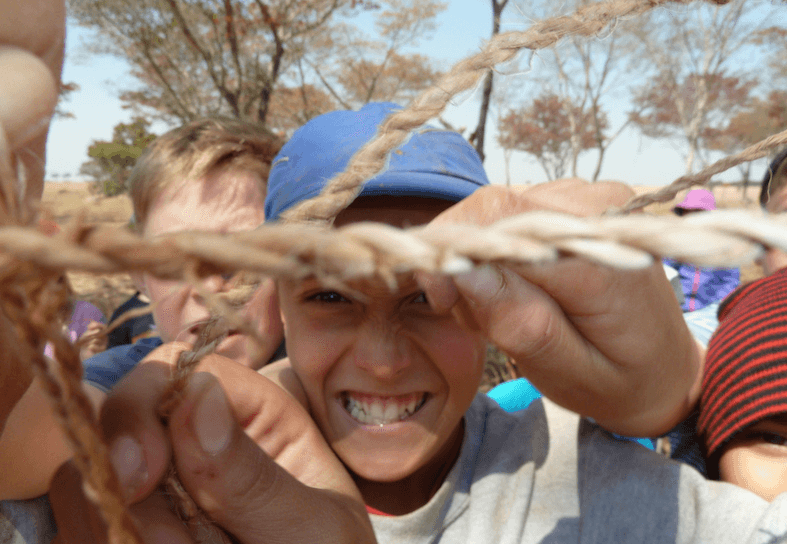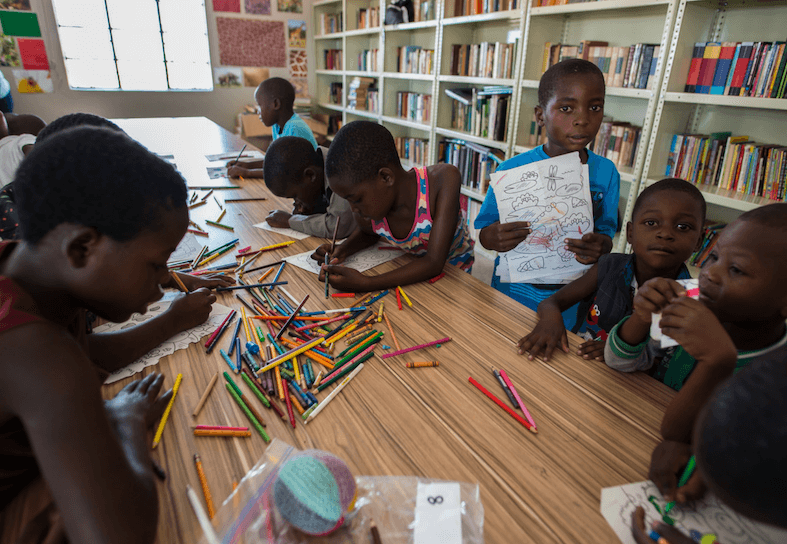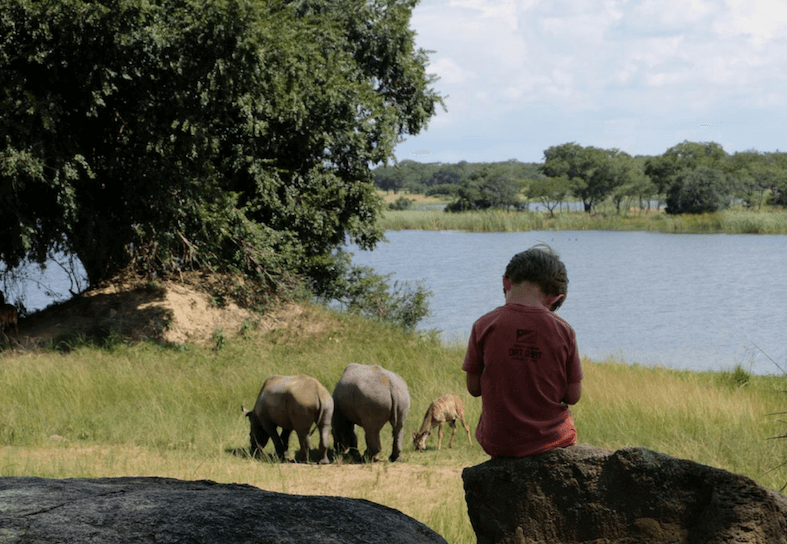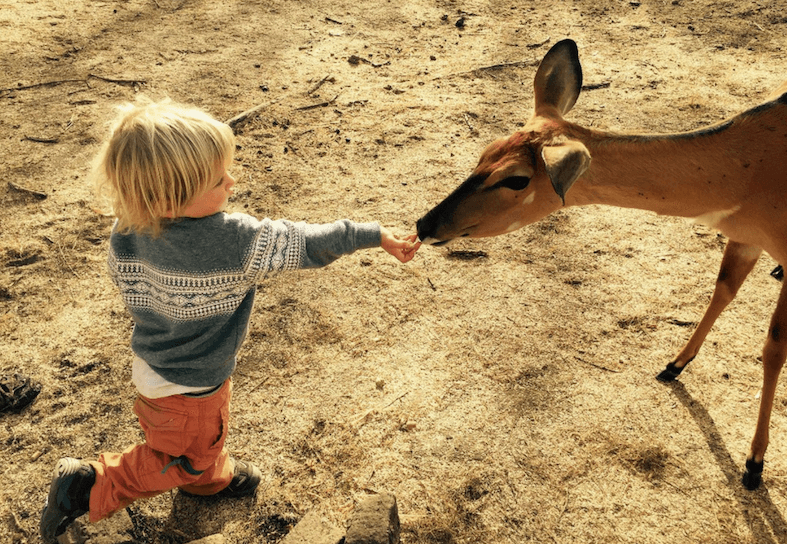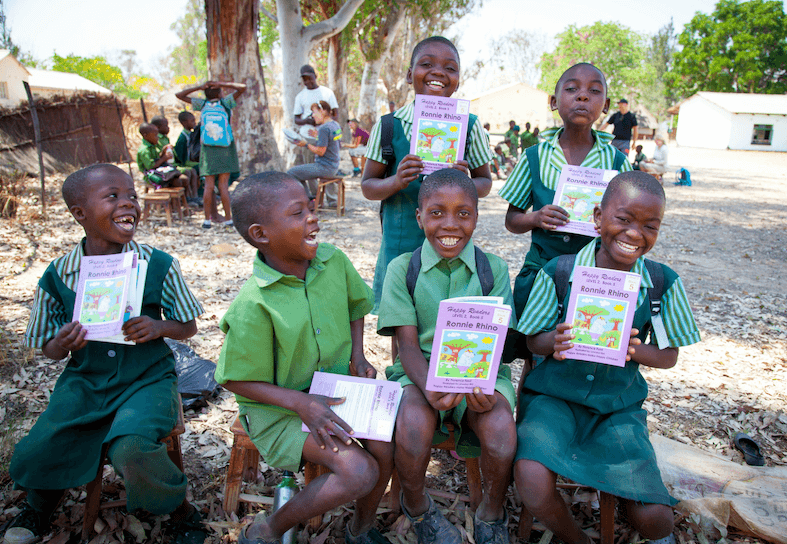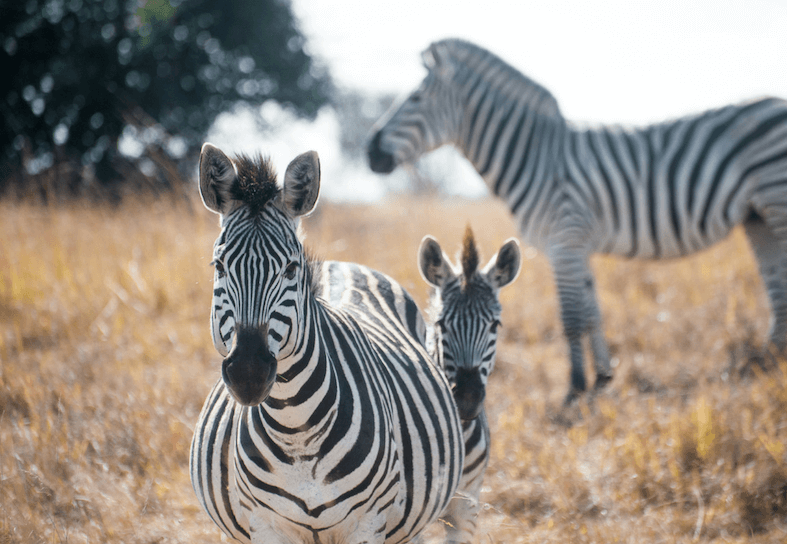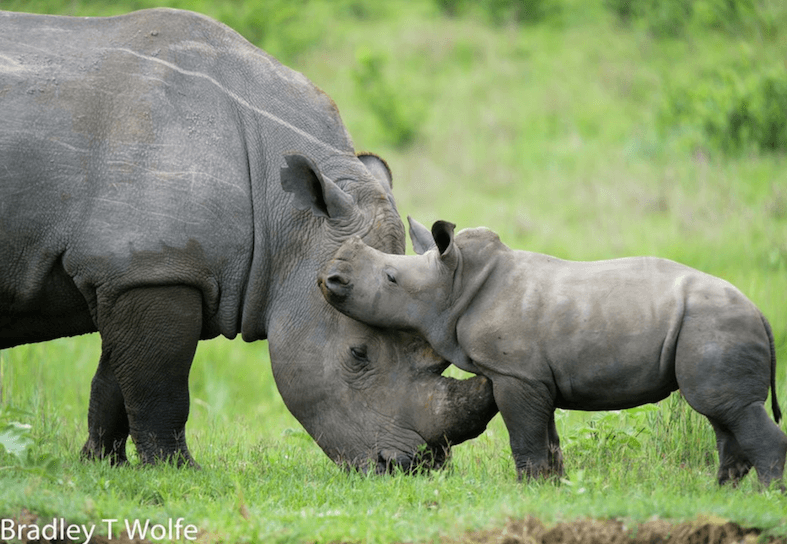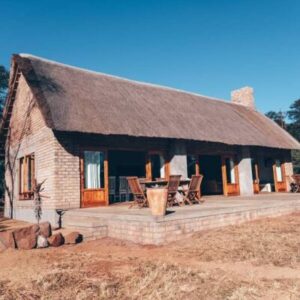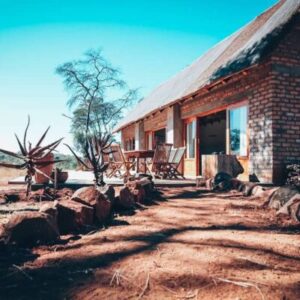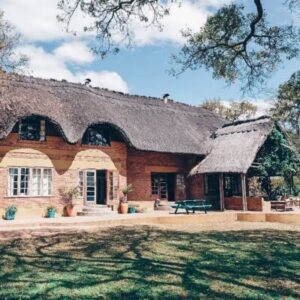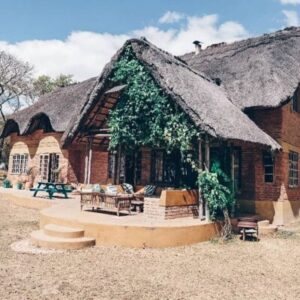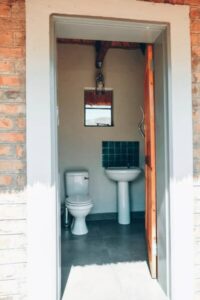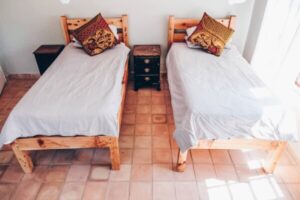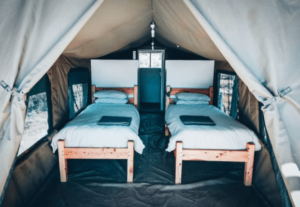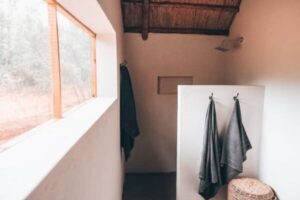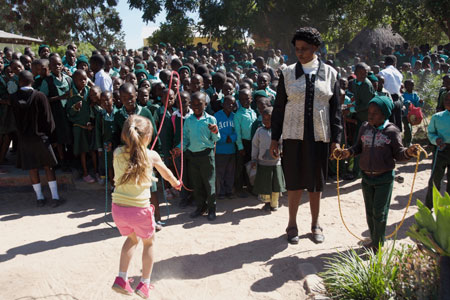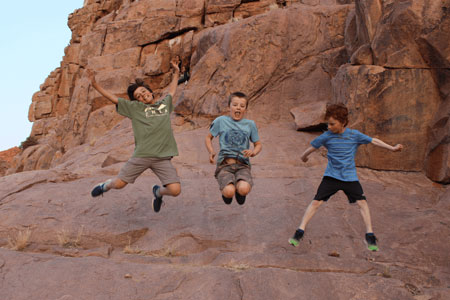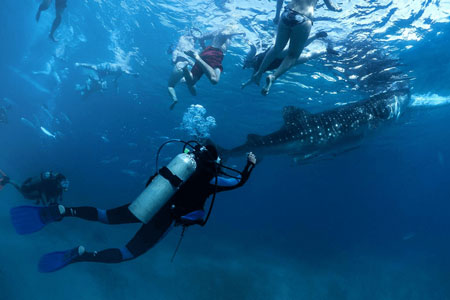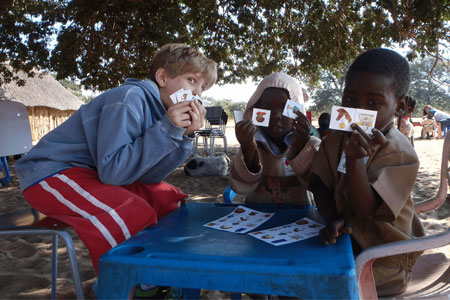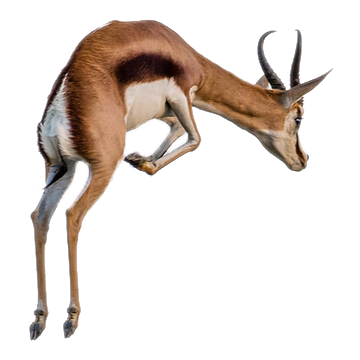Rhino & Elephant Conservation:
Family Volunteering
ZIMBABWE
Zimbabwe
1 - 8 weeks
Every Monday
Up to 12 people
Age 5+
From $950
Zimbabwe
1 - 8 weeks
Every Monday
Mondays
Up to 12 people
Max 12
Age 5+
From $950
What's the project about?
This family volunteering project is based at Imire: Rhino & Wildlife Conservation in Zimbabwe. Imire is dedicated to the sustainability of all African wildlife, focusing on the endangered black rhino. Their vision is to ensure the long term protection of Africa’s natural heritage, taking a unified approach to conservation. This is done through the creation of positive relationships between local communities and the wildlife. Family volunteers experience the thrill of witnessing Africa’s most iconic animals close at hand, while supporting a worthwhile conservation organisation.
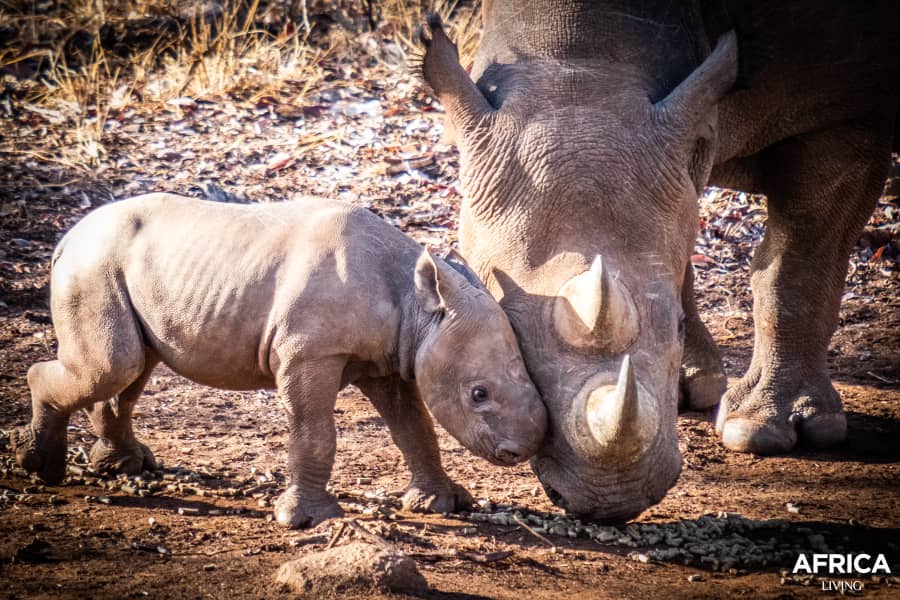
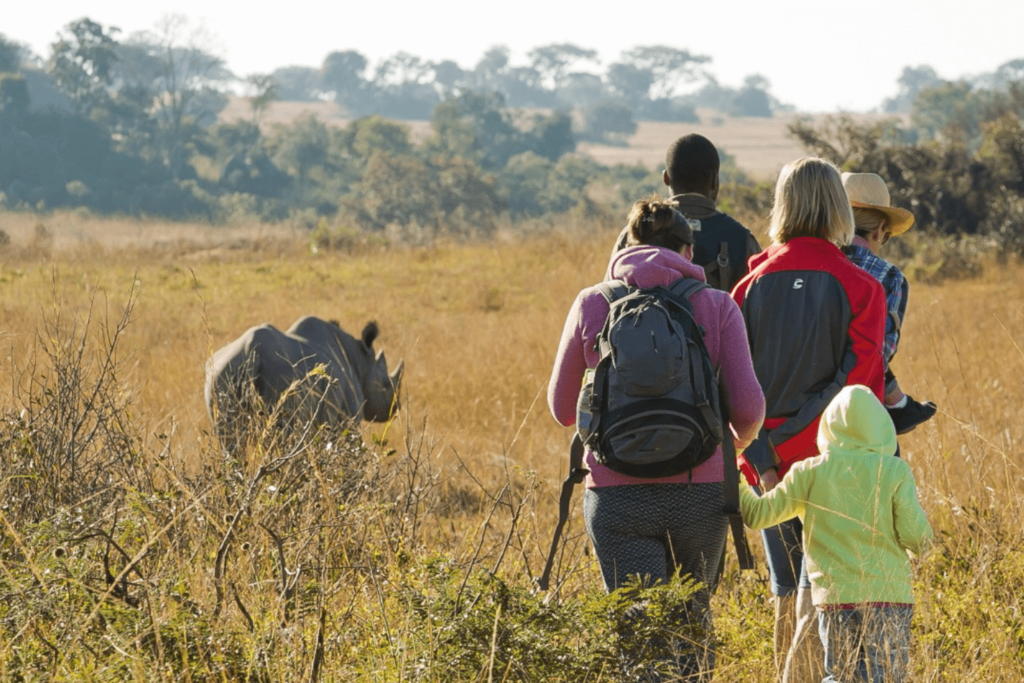
How will I be contributing?
This unique family volunteer programme in Africa gives you a once-in-a-lifetime opportunity to experience wild animals in a safe and natural environment. Family volunteers learn about rhino and elephant conservation within a private conservancy, where you can get up close with the wildlife. Family volunteers undertake practical conservation activities, learn about Africa’s endangered wildlife and interact with iconic African animals. Engage with community leaders and schoolchildren, visit homes, share cultures and learn bushcraft and survival skills.
What makes this project ethical?
Private conservancies such as Imire play a vital role in protecting and breeding endangered species. The human-wildlife conflict is possibly the greatest issue currently faced by conservationists. Through volunteering at Imire, you are directly participating in not only the protection of threatened wildlife, but also contributing to a conservation success story – where communities and conservancies peacefully and beneficially co-exist.
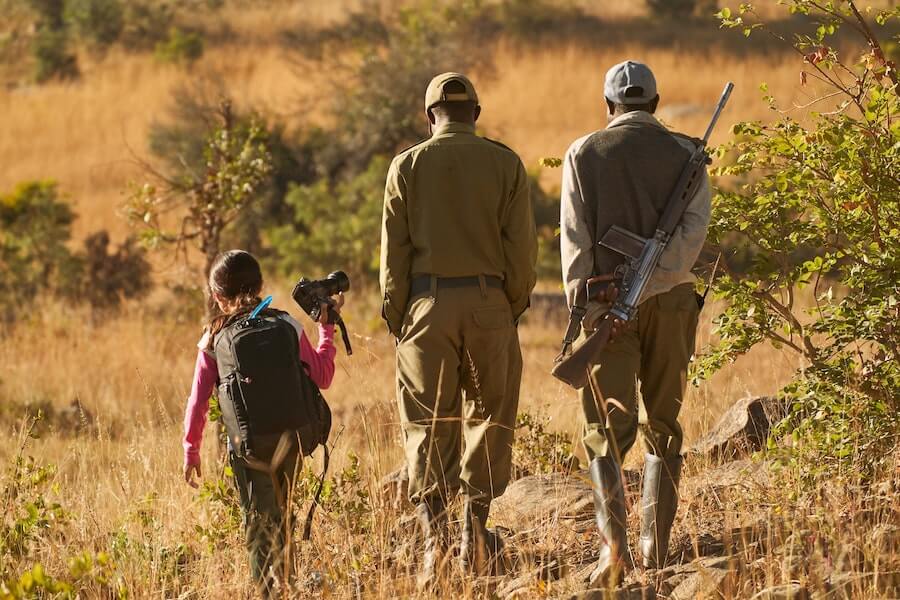
Project showreel
Project gallery
Project information
Our Rhino & Elephant Family Volunteer Programme gives your family the opportunity to live on a 10,000 acre private conservancy and learn about endangered species and their battle to survive. This family volunteering project is the sister programme to our popular Rhino & Elephant Conservation Programme, with activities adapted to make it suitable for younger children.
Depending on other bookings, families with children aged 14 and over may join the main volunteer group, doing the activities listed within that project – click for more details.
Family volunteering at Imire is a unique opportunity to immerse yourself in a new country and culture, and experience first-hand, day-to-day life in Africa. In return you will contribute to an important conservation cause. The experience will be life-changing for your whole family.
The conservancy has wonderful guides, experienced at teaching children to appreciate and understand the bush, and help them develop leadership and empathy towards people from different cultures.
Family volunteers will usually get involved in some or all of the following activities:
Wildlife conservation and animal interaction:
- Walk with the conservancy’s rhino and elephants, and learn from their experienced handlers;
- Learn about rhino conservation and what the reserve is doing to support the species in Zimbabwe;
- Learn to track and locate the white rhino using telemetry;
- Identify the different tracks and signs of animals, as you take guided nature walks through the bush;
- Repair elephant damage and cut browse for night time feeds.
Conservancy activities:
Get a sneak peek into the behind-the-scenes operation of a large conservation area.
- Go on snare patrols to check for evidence of illegal poaching and trapping, and report your findings;
- Deliver feed and nutritional supplements to sable, zebra, buffalo and other plains game. Help feed the lion;
- Join the Anti-Poaching Unit as they undergo training exercises;
- Meet Murwi and Shinga, star of the Anti-Poaching K9 Unit;
- Assist with fence building and repair;
- Remove invasive plants and help with tree planting.
Develop new skills:
Your guide will teach you how to survive in the bush; how to find water and how to navigate without using a map or compass – all activities great for developing leadership skills. Take part in practical conservation lessons, learn how to work as a team and practice your new skills in fun training exercises!
Culture and community projects:
Imire has been closely involved with the Wedza community since its foundation. Community engagement is the essence of sustainable conservation, and Imire has been a long-time champion of local employment, education, healthcare and poverty alleviation projects in the local community. The project are dedicated to the surrounding villages and work hard to emphasise the importance and benefits of protecting wildlife and the environment. Family volunteers will:
- Experience Shona culture first-hand. Go on home visits, learn to cook traditional meals and move your feet in traditional dances;
- Meet members of the local community and share ideas and experiences;
- Visit the ancient Bushmen paintings and hear the history of the Wedza area;
- Brave the ladder and climb to the top of Castle Kopje, as you learn about the conservancy’s rich history from local guides;
- Help with the community vegetable gardens;
- Visit the local school and pre-school (term-time only).
The family volunteer programme is small and welcoming. Volunteer accommodation is situated in the heart of the conservancy in a beautiful location surrounded by nature.
There are a mixture of double and twin rooms, with volunteers sleeping in comfortable single beds. If you would like your family to be accommodated in one room, please let us know and we will see what is possible. All bedding is provided, including duvets, pillows and extra blankets in winter. Showers and toilet facilities are shared, and hot water is supplied for showers and washing. Power sockets for electrical items are available in communal areas (UK three-pin square plugs).
Three home cooked meals are provided each day on a self-serve basis. If you or your children have specific dietary requests (we understand kids eating habits!), please let us know. Vegetarian and vegan options are available upon request, but should your family have any complicated dietary requirements or food allergies, it is important you let us know before you arrive. If you have very specific dietary needs (for example gluten, dairy or wheat intolerance), you may be asked to bring any specialist foods with you. The chefs will be able to prepare these for you alongside other volunteer’s standard meals. Clean, safe drinking water is pumped from a borehole.
Your rooms and communal areas will be cleaned every day, and the housekeeping staff will also do your laundry when required. An outhouse laundry is available for washing smalls or should you wish to do an extra load of your own.
Bear in mind that electricity can be intermittent in Africa, especially during our rainy season. For backup, the project are prepared with basic solar powered lighting and a generator which will run for a short time in the morning and evening.
There is Wi-Fi at the project, charged at $10 per device per week. Cellphone signal and 3G connection is intermittently available. When there are electricity problems, both the WiFi and cellphone signal can be problematic, but the signal is usually strong enough then to touch base with home in certain areas of the conservancy.
The volunteer coordinators have access to a safe for securely locking away any cash or valuables you may have brought with you.
“My morning view. “A little slice of heaven”. This place is magical. Three meals are provided per day and all of our meals we had were fresh, colorful, and delicious. The cooking staff were top drawer! Our daily guide was Morris and I cannot even begin to explain how wonderful he was- a treasure.” – Pam Galenkamp
“My daughter and I are vegetarians, and the staff were so accommodating. Our favourites were the veggie curry, the spaghetti, and the lentil soup. The quantity and variety was perfect.” – Jennifer & Elizabeth Cohen
When can I volunteer?
Family volunteers can join the Rhino & Elephant Conservation Programme every Monday. If family groups wish to arrive and depart on different days, this can sometimes be arranged – please enquire for details. If alternative dates are possible, there is a supplementary transfer fee of $120 per vehicle for each non-Monday transfer.
Project pricing:
The project fees are USD $950 per person per week. We recommend a one or two week stay.
What’s included in the cost?
- Project contribution: this goes directly to our project partner, and provides funding to ensure the programme can continue to meet its goals. For this project it will cover things like staff costs, equipment purchases, maintenance of buildings, equipment and vehicles, veterinary fees, animal feed, fencing, and funding for community projects
- Accommodation and three meals per day
- Return airport transfers (Mondays)
- Laundry and housekeeping
- Comprehensive orientation and supervision
- Practical instruction by experienced guides
- Equipment and materials required to do your work
What’s not included?
- Flights or travel to Harare, Zimbabwe
- Visa fees (variable depending on nationality)
- Travel insurance (compulsory)
- Personal expenses such as souvenirs, drinks from the bar, snacks
- Pre and/or post programme accommodation (if required)
- Additional excursions
- Local SIM card and data/airtime bundles (optional)
- Administration fee ($40)
COMBINATION PROJECTS
We highly recommend combining this Rhino & Elephant conservation project with a week or two at our Community Outreach Programme in Victoria Falls. Here you will live in the heart of a rural community and work alongside farmers, teachers and inspirational community members.
Click for more details of our Conservation & Communities combination project.
Imire’s primary goal is to support Zimbabwe’s rhino heritage, through the successful breeding and re-wilding of the endangered black rhino.
Their mission is to ensure the long term protection of Zimbabwe’s wildlife through a unified and holistic approach to wildlife conservation. Their aim is to create a blueprint for small conservancies, enabling them to peacefully and successfully exist alongside local communities. This ensures that all the environmental stakeholders, including landowners, conservationists, communities and local farmers, benefit from the presence of wildlife.
Family volunteering forms a critical part of Imire’s mission to connect responsible travellers, wildlife programmes and community projects, to create a sustainable, long term, collaborative conservation strategy. The project believe that family volunteers are crucial, as it is children and young adults who will be the conservationists of the future, tasked with halting the decline in the planet’s flagship species.
During your time at Imire, families live in the heart of the conservancy, interact with rhinos and elephants and gain an appreciation of the commitment required and challenges faced to protect wildlife in Africa.
Imire: Rhino & Wildlife Conservation is a 10,000 hectare privately owned rhino conservancy in the Mashonaland East district of Zimbabwe, approximately 130km south-east of Harare. The conservancy is dedicated to the welfare of all wildlife, with a particular focus on the protection and breeding of white rhino, and the critically endangered black rhino.
Imire was founded in 1948 by Norman and Gilly Travers. Originally farmers, the Travers’ had a passion for wildlife and conservation, leading to the establishment of Imire as a wildlife conservancy in 1972. During the 1970s, game was introduced back onto what was previously farmland. Then, like Noah’s Ark, the animals came in two by two, and by 1980 the park was home to sizeable herds of plains game – waterbuck, impala, nyala, zebra and the rare sable antelope.
A history of rhino conservation
During the poaching crisis of the 1980s, most of Zimbabwe’s remaining black rhino population were relocated to the relative safety of Intensive Protection Zones within private conservancies. In 1987, Imire was granted custodianship of seven orphaned calves from the Zambezi Valley and became a dedicated black rhino breeding station. To date, 15 rhino have been born on the reserve, and Imire has released 13 black rhino back into National Parks in Zimbabwe.
With increasingly sophisticated wildlife poaching, rhino numbers have again dropped alarmingly. Until the current high levels of poaching abate in Zimbabwe’s National Parks, Imire has resolved to protect and secure its rhino onsite, rather than risking release into wilderness areas.
Imire’s current strategy is that all their rhino, excepting a core breeding herd, are released into a community-supported, second stage, free-roaming wilderness area within Imire’s boundaries. This allows the rhino to become less habituated, without daily interactions and supplement feeding. Armed guards remain with the rhino, but at a distance. In this way Imire can ensure their rhinos are safe from birth, until such a time when they are able to confidently release rhino back into their wild habitats, in Zimbabwe’s National Parks.
Other wildlife
Imire is world-famous for its seven black and four white rhino. In addition, the conservancy is home to three elephants, a herd of Cape buffalo and an elderly male lion, living out his retirement in comfort! There is a variety of plains game including eland, kudu, nyala, waterbuck, blesbok, zebra, giraffe, wildebeest and crocodile, plus herds of the rare sable antelope – Zimbabwe’s National Animal. Imire is also home to a wide variety of birds, reptiles and snakes.
Who should volunteer on this project?
This is a wonderful experience for families of all ages, where you will experience Africa in a safe environment, work hard and complete activities as a family. No experience is required, just a positive, can-do attitude and a passion for wildlife and the outdoors.
How old do I need to be?
The minimum volunteering age for the project is usually 5 years, although younger children have joined the project and had a wonderful time. Please do enquire if you have children younger than 5 years and would like to volunteer. There is no upper age limit, but for volunteers aged over 65, we do require your medical form to be signed by a doctor.
How many people will there be?
There is a maximum of 12 people in a group. Families with children aged 14 and over may be accommodated with the main Rhino & Elephant Conservation Programme volunteer group. Families with younger children will usually join with other family groups and do activities tailored to the ages of children (see the Activities tab).
When can I join?
Family volunteers should aim to arrive and depart on a Monday. Private transfers are charged at $120 per vehicle. Groups of up to 6-8 can normally be accommodated in one car.
What food will I eat?
Both our family volunteering project sites have dedicated cooks who make delicious wholesome food, all served buffet-style. Breakfasts generally include toast, cereals, fruit, yoghurt, eggs and homemade fritters; lunches will include salads, pasta, cold meats and fresh bread, and in winter, homemade soups and rolls. Dinners will include pasta, curries, stews, with fresh vegetables and starch. Vegetarians, vegans and celiacs can be catered for – please let us know when booking. Specialist food items such as gluten-free products and dried fruits and nuts are extremely expensive and hard to come by in Zimbabwe, so we may ask you to bring some supplies from home if you do have specific dietary requirements.
When is the best time to come?
The game viewing and interaction at this project is year-round, so there is no real ‘best time’ to visit. December to March is ‘baby season’, where many of the plains game give birth, so there are always lots of new animals around.
From a weather perspective; April – October is the dry season, with the rains usually coming again in mid to late November. June – September is winter, characterised by warm, sunny days, clear blue skies and cool evenings and nights. October is the hottest month, with temperatures in the area reaching 30-32 degrees. November – March is summer, where rain showers are intermingled with hot, sunny days and temperatures of over 30 degrees.
Do I get some time off?
Volunteers work from Monday to Saturday lunchtime. Saturday afternoon and Sunday is leisure time, where you can go fishing, canoeing or hiking, or relax by the pool at the volunteer house. We highly recommend a long weekend excursion to Victoria Falls (a one hour flight), which should be organised prior to your travel.
How long can I volunteer for?
The minimum recommended project length is one week, and the maximum stay is eight weeks. We recommend a one or two week stay.
How much spending money should I bring?
We recommend bringing around $100 per week in USD per person to cover personal expenses such as drinks, souvenirs, t-shirt, snacks, tips and internet usage.
Do I need a visa?
Most nationalities, including British, American, Canadian, Australian and most EU citizens, can and should get a 30-day tourist visa upon arrival into Harare. Fees are dependent on nationality and range from $30 – $75 (paid in USD cash). Extensions are available from the Department of Immigration in Harare, up to a maximum stay of 6 months. It is your responsibility to check your visa eligibility prior to arrival.
What animals will I encounter?
Imire is world-world-famous for its ten black and eight white rhino. In addition, the conservancy is home to three elephants, a herd of Cape buffalo and an elderly male lion, living out his retirement in comfort! There is a variety of plains game including eland, kudu, nyala, waterbuck, blesbok, zebra, giraffe, wildebeest and crocodile, plus herds of the rare sable antelope – Zimbabwe’s National Animal. Imire is also home to a wide variety of birds, reptiles and snakes.
What vaccinations do I need?
Please consult your GP or travel clinic for detailed medical advice. All volunteers should make sure their Tetanus is up to date.
Malaria – the project is regarded as a low-risk malaria area, but please consult your GP for guidance.
Please visit this UK government website for more details.
Volunteer reviews
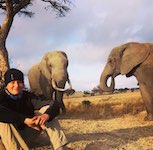
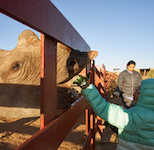
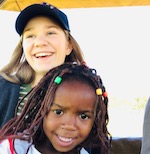
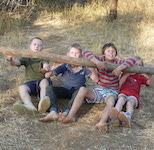
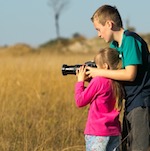
Other projects you might be interested in
Work with rhinos and elephants on a private family-run conservancy, and get involved with community outreach projects in rural communities outside Victoria Falls.
From $1,650
2 - 8 weeks
A hands-on programme in Namibia where families work on building projects in desert communities, plus track and monitor the rare desert-adapted elephant.
From £950
2 weeks
Take the kids on a beach holiday with a difference! Learn to dive in a spectacular location, and contribute to research into whale sharks, manta rays and marine turtles.
From £1,980
2 - 16 weeks
Learn about other cultures as you engage with schoolchildren, teachers and farmers, while living in the community. Get a fresh perspective and appreciate different ways of life.

